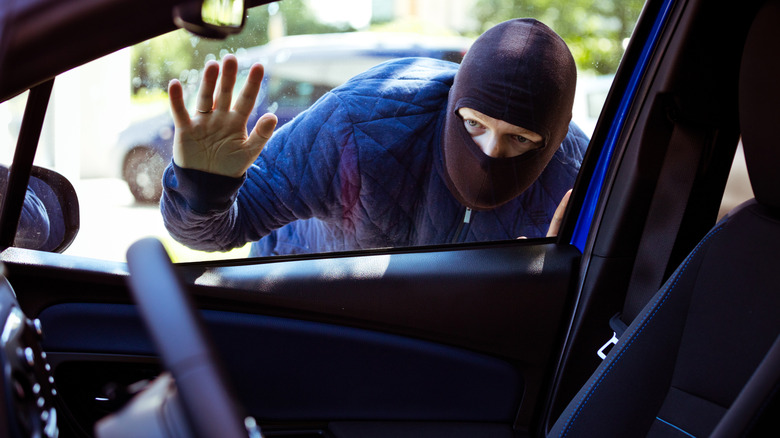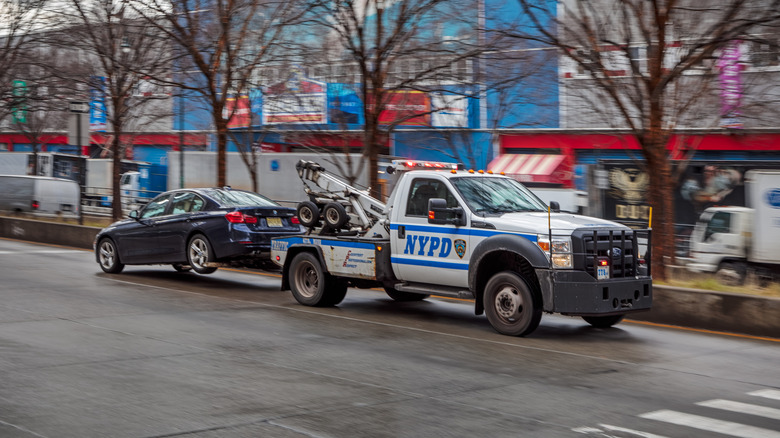If The Police Seize Your Reportedly Stolen Car, You Could Still Have To Pay It Off
According to the National Highway Traffic Safety Administration (NHTSA), more than 850,000 vehicles were stolen in the United States in 2024, which breaks down to roughly one every 37 seconds. That may seem like a lot, but it's actually a decline of 17% from 2023, marking the first time the number has dipped below one million since 2021. Different states have higher rates of car theft than others.
Additional data points indicate that in 2024, 40% of Americans had a monthly car payment. The current population in the U.S. is over 342 million; last year it was at 340 million. That equates to approximately 136,000,000 people forking over cash each and every month on a car loan.
So, what happens if that car you're paying off gets stolen? The short answer is, keep making payments not just on the car loan, but also for your insurance coverage, until the whole matter is resolved. That includes situations where the police find the vehicle and need to impound it while the investigation proceeds, or in an unfortunate scenario where they seize the car indefinitely. Guaranteed Asset Protection (GAP) insurance is an available safety net that will cover the difference between the insured value of your stolen vehicle and what you might still owe on it. Ultimately, you agreed to a binding financial agreement when you purchased the car, and it's your responsibility to continue paying on that loan until all parties involved (police, insurance, lender, etc.) are satisfied.
The best advice is to keep making payments
Earlier this year in Florida, the parents of a 16-year-old girl purchased her a silver 2017 Toyota RAV4 (one of the most reliable and affordable used Toyotas) for $17,000. They paid with a cashier's check, but used a home equity line of credit (HELOC) to do so. Seven months later, the local sheriff's department arrived at their home because the SUV had been reported stolen. Yet, it was sitting in the driveway.
The RAV4 was purchased from the owner of a local auto shop, who had legally taken possession of it through a mechanic's lien after one of his customers failed to pay the repair bill. He turned around and sold it to the parents, transferring the title under his business name (which was all legit). That title was eventually flagged as "canceled," and a "stop" was placed with Florida's DMV, thus the seizure. The RAV4 sat at the impound lot as the investigation took its course, but the parents were still responsible for timely loan payments.
Private sales carry a significantly higher risk than buying from a licensed dealership, as consumer protection laws aren't the same. Every document must be verified, and one can't assume a deal is ever "safe" even with what appears to be a clean title. Even though this wasn't a conventional auto loan, the lienholder (whoever that may be) still needs payment. Stopping them will only tarnish your credit history and could complicate the insurance claim process. Worse, it may trigger a red flag and lead the police to suspect you may have been involved in the original theft.

